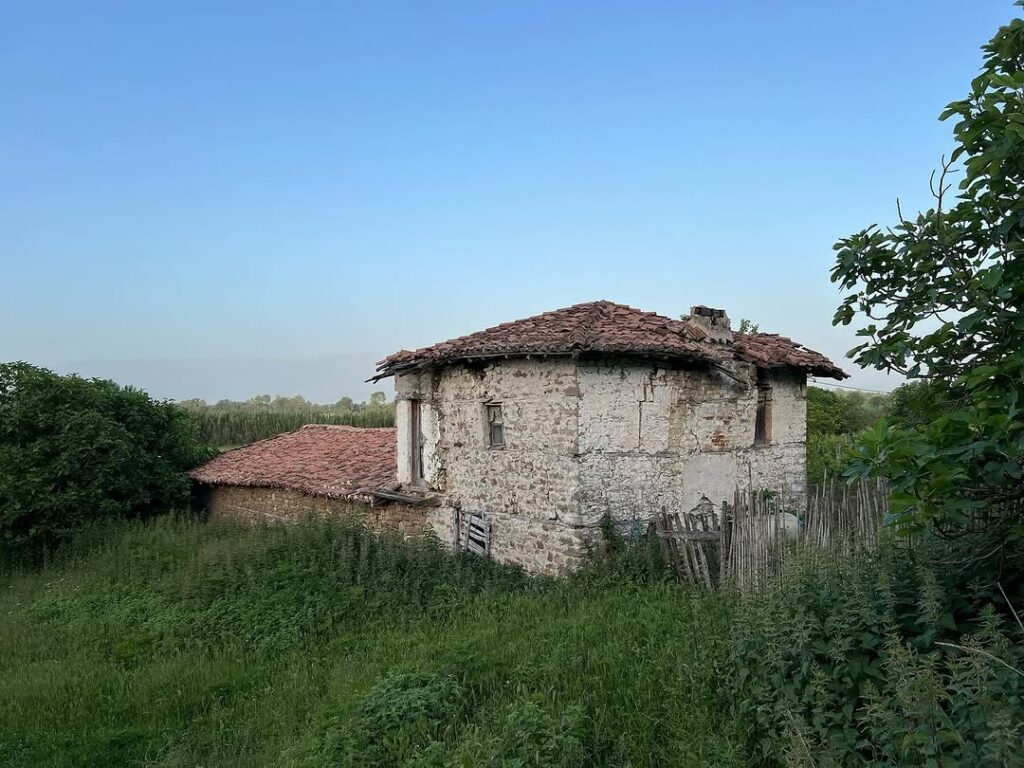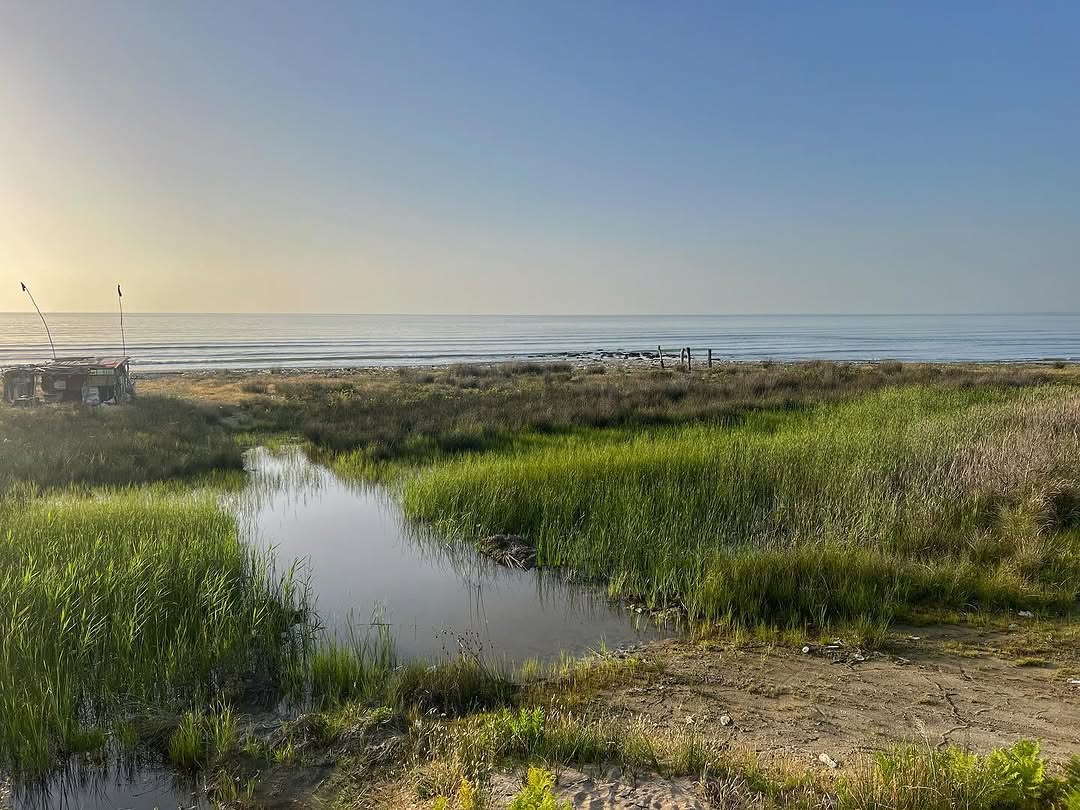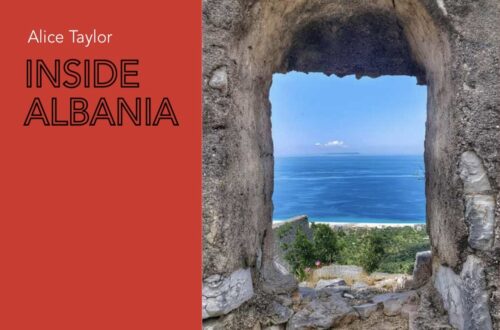As we left the town of Mamurras, the road took us across several canals and a main road before turning off onto a flat plain with nothing but rolling fields of crops and poppies to accompany us. The smell of sulfur trailed away, replaced by the faint odour of cattle, flowers, and the dry, slightly sweet scent of grass and recently ploughed earth. The sun had begun its slow descent behind the hills, casting a golden light across everything we passed: abandoned houses, thickets of broom, berries, and bush, and herds of goats and the occasional sheep.
After some time, the asphalt came to an abrupt end, and we found ourselves on a rocky road that jumped and lurched at every turn, jostling and jolting and leading to the occasional exclamation from the car’s inhabitants. After some 40 minutes, we chanced across a car coming in the opposite direction, a car definitely not designed for such bumpy conditions.
We stopped and, realising they were not Albanians, struck up a conversation.
“Where are you going?” I asked. “Lake Shkoder,” they replied, adding they were tourists from Kazakhstan.
I tried to explain that Lake Shkoder was about 5 hours in the opposite direction, and the road they were on would take them to Mamurras if they were lucky, but they seemed to have more faith in their GPS than me and went on their way. I have since wondered, on several occasions, whether they made it to Lake Shkoder at all.
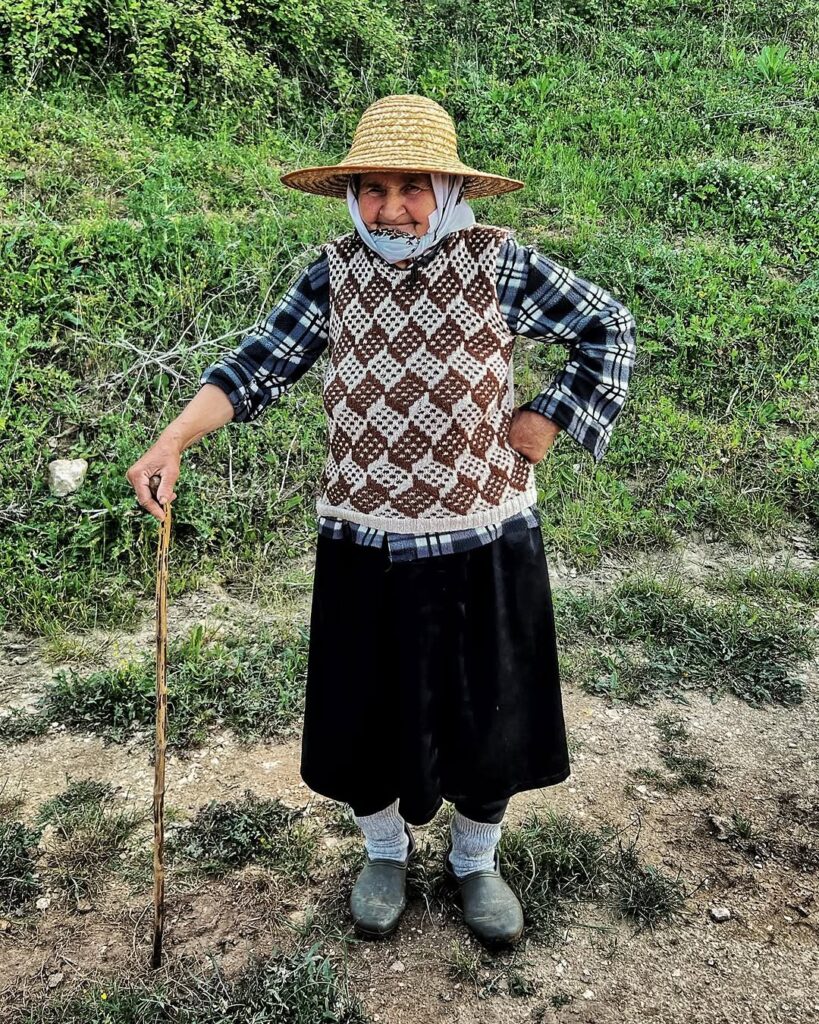
A while later, we chanced upon another traveller- this time, a lady of 80 with a wizened face with deep lines, a white scarf around her head, and a straw hat perched on top. She was accompanied by a rather charming dairy cow, and after a short exchange of pleasantries with her and not the cow, we were on our way.
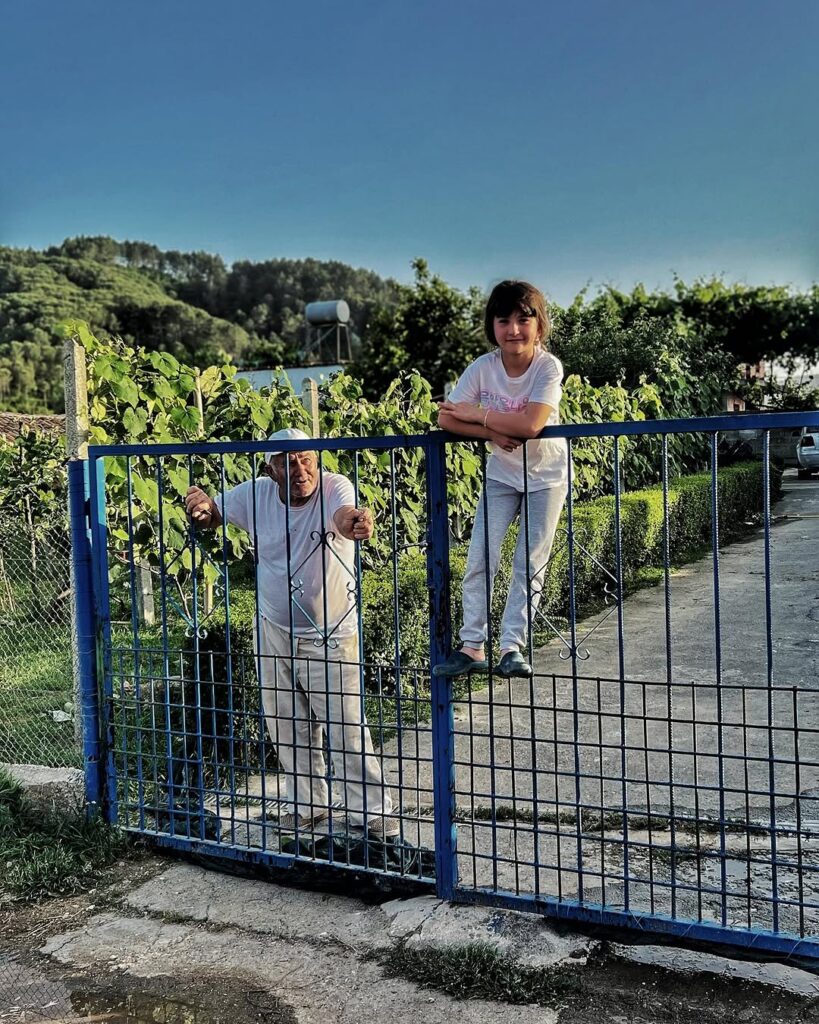
We passed rows of fields, divvied up by bushy hedges or fences made of woven branches, home to corn, animal feed, and the general wilderness of the Albanian countryside. Stopping at a small house with a garden full of perfectly tended fruit trees and roses, I snapped a photo of the owner and his lovely granddaughter Addeliana, who beamed with pride when I congratulated her on such a beautiful name.

After around one hour, the smell of agriculture diminished and was replaced by the salty tang of the sea air. We turned a corner and found ourselves on the northern side of the Cape of Rodon. Here, the road fell away to a treacherous-looking marsh, full of noisy, garbling frogs, the sand of the beach, and the gentle waves of the spring sea beyond.
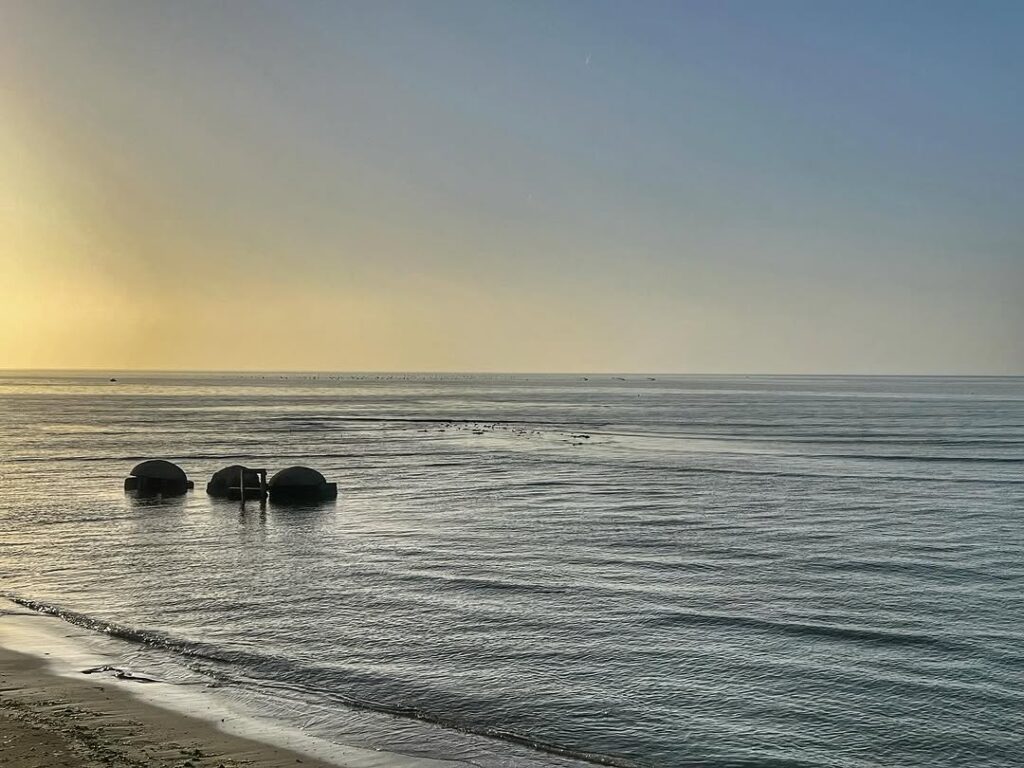
Makeshift fisherman’s huts lined the shore, composed of driftwood, boards and plastic sheeting harvested from the ocean and tied together with twine and old netting. A lone fisherman stood on one outcrop, casting his rod near three marine bunkers built on the land during communism, but which had succumbed to the encroaching ocean over the years since.
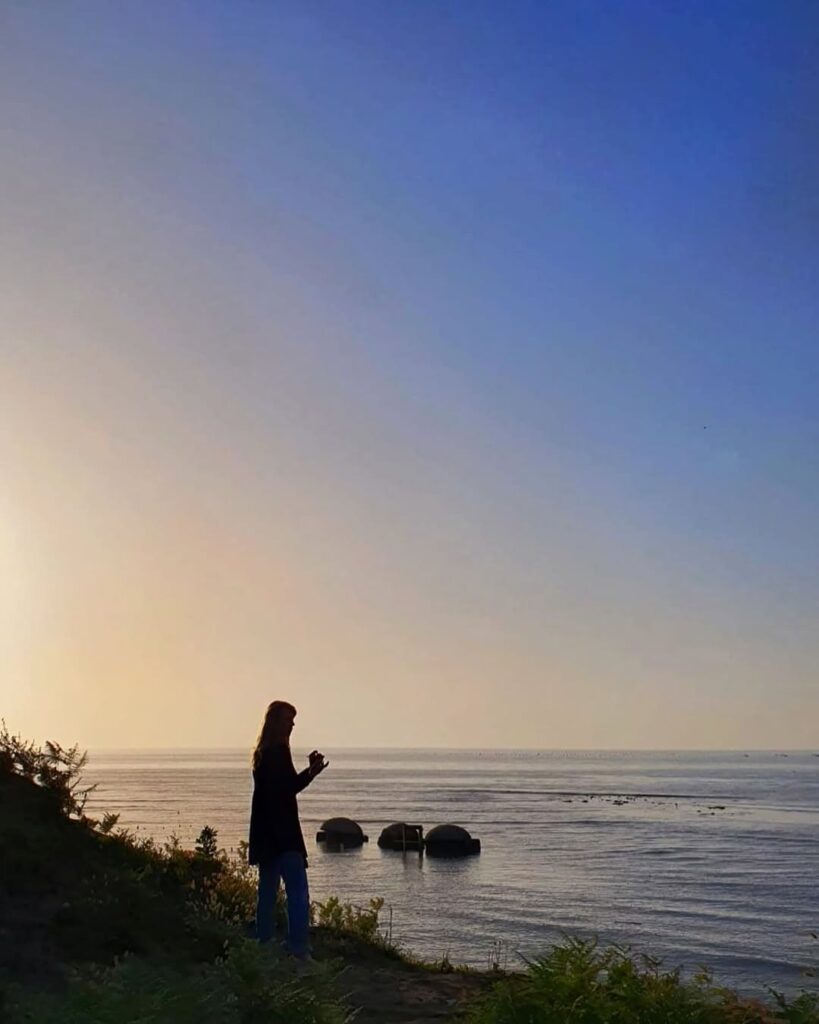
Leaving the bickering of the frogs and the hawking of the gulls behind us, we headed back to Tirana, back through the remote villages with no telebingo, no kiosks, no phone shops, no lavazhes, and no cafes, so cut off from the world, despite being nestled right in the centre of the country and just a stone’s throw from its capital.
